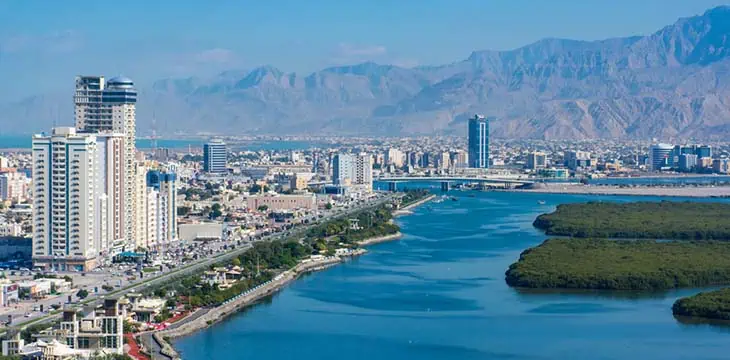|
Getting your Trinity Audio player ready...
|
Ras Al Khaimah, one of the seven emirates in the United Arab Emirates, has launched a free trade zone for digital assets, toeing the path of Dubai and Abu Dhabi.
Called the RAK Digital Assets Oasis, the zone will be focused on incubating and supporting developments revolving around blockchain, metaverse, and artificial intelligence (AI). The new Web3 hub will form part of the city’s economic plan to pivot from tourism and oil.
The zone’s official launch drew attendance from the city’s ruler, Sheikh Mohammed bin Saud bin Saqr Al Qasimi, business leaders across the UAE, and Web3 startup founders. Plans for the new Web3 hub have been underway since March with ambitions to house firms dabbling in decentralized finance (DeFi), non-fungible tokens (NFTs), and digital wallets.
“Ras Al Khaimah is committed to embracing new and emerging tech sectors and playing a leading role in national efforts to strengthen the UAE economy and drive sustainable growth in the region,” said Sheikh Saud.
The Sheikh described the trade zone as proof of the city’s commitment to embrace digitization for “sustainable economic progress,” urging global investors to set up shop in the zone. The RAK Digital Assets Oasis CEO, Dr. Sameer Al Ansari, disclosed that the free trade zone will rely on grants, tax relief, and regulatory and technical support to lure activity in the region.
Other perks include subsidies on rent, a blockchain pool for Web3 firms, business development support, and a clear legal framework for the ecosystem. On the flip side, Ras Al Khaimah has its sights on reaping the benefits of pivoting to digitization to provide jobs for residents and increase its share of the UAE’s gross domestic product (GDP).
“We observed that global trends and data point to the incredible opportunity digital assets offer, and we felt that Ras Al Khaimah could and should benefit from being a first adopter,” said Sheikh Saud.
Ras Al Khaimah currently plays second fiddle to Dubai and Abu Dhabi, given their extensive experiences in operating digital assets free trade zones. The Abu Dhabi Global Market (ADGM) currently houses hundreds of Web3 startups in the region, buoyed by a fresh $2 billion initiative, while Dubai plays host to leading global exchanges.
The UAE surges ahead
In the Middle East, the UAE has emerged as the leading hub for blockchain, with a string of government-backed initiatives to explore new use cases for the technology.
While individual emirates like Dubai have rolled out their distinct rules for digital currencies, the UAE’s Minister of State for Foreign Trade, Thani Al-Zeyoudi, disclosed that the country will be rolling out regulations with a national outlook.
Regarding AI, the UAE is in a two-horse race with Saudi Arabia following the multi-million order of NVIDIA’s (NASDAQ: NVDA) latest line of AI chips. Despite the heavy investment in infrastructure, there are fears that the UAE could use its AI foray for human rights violations.
In order for artificial intelligence (AI) to work right within the law and thrive in the face of growing challenges, it needs to integrate an enterprise blockchain system that ensures data input quality and ownership—allowing it to keep data safe while also guaranteeing the immutability of data. Check out CoinGeek’s coverage on this emerging tech to learn more why Enterprise blockchain will be the backbone of AI.
Watch: With blockchain, the utility is becoming more and more importantt

 07-14-2025
07-14-2025 





